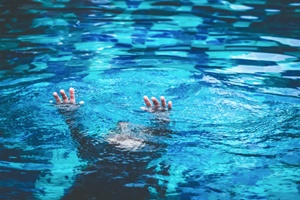 Swimming pools can be a lot of fun. You may enjoy pool parties, getting some exercise, or spending time with your family and friends.
Swimming pools can be a lot of fun. You may enjoy pool parties, getting some exercise, or spending time with your family and friends.
However, swimming pools can also be dangerous—particularly for children. According to the Consumer Product Safety Commission, 163 children under the age of 15 died in fatal swimming pool accidents from Memorial Day to Labor Day in 2017. In 2016, 205 children under the age of 15 died in swimming pool accidents during the summer season. Each year, almost 70% of these children were under age five.
Many other children and adults were injured in swimming pool accidents during this time.
Brain Injuries Resulting From Swimming Pool Accidents
People who incur brain injuries in swimming pool accidents may live with the effects of their injuries for the rest of their lives. The brain can be damaged in a swimming pool accident if:
The swimmer is deprived of oxygen for too long.
When a person is underwater for too long, he or she may be deprived of oxygen. This could happen if, for example, someone else is playfully or maliciously holding that person underwater or if the person becomes stuck in a drain, pipe, or pool toy.
The swimmer hits his or her head.
Commonly, this occurs when a person dives head first into shallow water or slips and falls at the edge of the pool. It may also occur if a person hits his head on the side of the pool, bangs his head against a hard object or another person, or falls off a broken slide or diving board.
In many situations, brain injuries can be avoided if the property owner exercises reasonable care. For example, a swimming pool owner may prevent a brain injury by:
- Installing fencing so that no one can access the pool without permission.
- Making sure that all pool drain covers meet federal standards to avoid entrapment.
- Making sure that someone is supervising other swimmers—and enforcing safety rules—every time the pool is used.
- Putting up no-diving warning signs in shallow water areas.
These safety precautions are important for residential, public, camp, school, and private club pools.
Living With a Brain Injury After a Swimming Pool Accident
Two types of brain injuries may occur from swimming pool accidents. Depending on whether the person suffered from oxygen deprivation or a hit to the head, the person may suffer:
An anoxic brain injury.
An anoxic brain injury occurs when the brain is deprived of oxygen for too long. Some of the injuries that can result include cognitive disabilities, memory issues, vision problems, speech problems, personality changes, and other issues.
A traumatic brain injury.
A traumatic brain injury occurs when there is trauma, or a blow, to the head. The exact injuries that result will depend on the part of the brain that is injured and the force of the trauma. Sensory issues, headaches, confusion, cognitive problems, and other physical problems can occur.
Some of these brain injury complications can be temporary, but others may be permanent.
Protect Your Fair Recovery After a Swimming Pool Brain Injury
The costs of living with a brain injury can be astronomical. You may need medical care, rehabilitation therapies, and assistance with daily living activities for a long time. You may be unable to work, and you may experience significant physical pain and emotional distress. If you suffered your brain injury because of someone else’s negligence, you should not be the one to pay these financial damages.
The experienced brain injury lawyers of Gray and White Law are here to help you. Contact us online or call our Louisville office directly at 888.450.4456 if you have been hurt or a loved one has been injured and is unable to contact us independently. We would be pleased to schedule a free consultation with you to explain your rights and to explain how we may help you get the fair recovery that you or your loved one deserves.
Related Links: